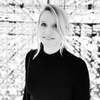Gretchen Andrew visualizes her desires as an artist through pieces she calls “vision boards.” She then turns her objectives into an internet reality, tricking Google’s search engine algorithms into showing her vision boards on top of the image search results for keywords such as “Cover of Artforum,” “Turner Price,” or “Best MFA.” By making the Law of Attraction part of her art practice, Gretchen’s work turns into a self-fulfilling prophecy in the real world, and renowned publications and galleries feature her work.
When Gretchen Andrew decided to quit her job at Google to become an artist, most people thought she was crazy. “Armed with the willfully utopian ideals of the software industry, I planned to learn how to be an artist on the internet,” she states in Research Catalogue. So Andrew asked the World Wide Web: “How do you stretch a canvas? How do you paint clouds? How do you draw hands? How do you write an artist statement?”
Instead of attending a Fine Arts College spending thousands of dollars she didn’t have, the online education approach paid off instead. Since then, Gretchen has exhibited in the V&A Museum in London and the British Film Institute. She even convinced artist Billy Childish to take her on as a studio apprentice. In 2020, Andrew joined Annka Kultys Gallery and will have her first exhibition, Other Forms of Travel, at the gallery’s London new exhibition space in Spring.
You studied information systems at Boston College and worked at Google after graduating. But soon, you decided to quit the tech industry to pursue a career as an artist. Was there a key experience that led to this decision?
Gretchen Andrew: I had been having a terrible time at Google in part because my ex-McKenzie manager made me feel like I was in a Dilbert cartoon. I was reading a lot of Seth Godin at the time and was feeling like all the supposed tech industry mainstays of disruption, openness, and lack of hierarchy weren’t part of my experience. It took a while, but I got a new manager, a new team, and a new project that took me on a business trip to the Google Zurich office. For dinner there, they were serving kangaroo meat. I think that was the end of the dream for me.
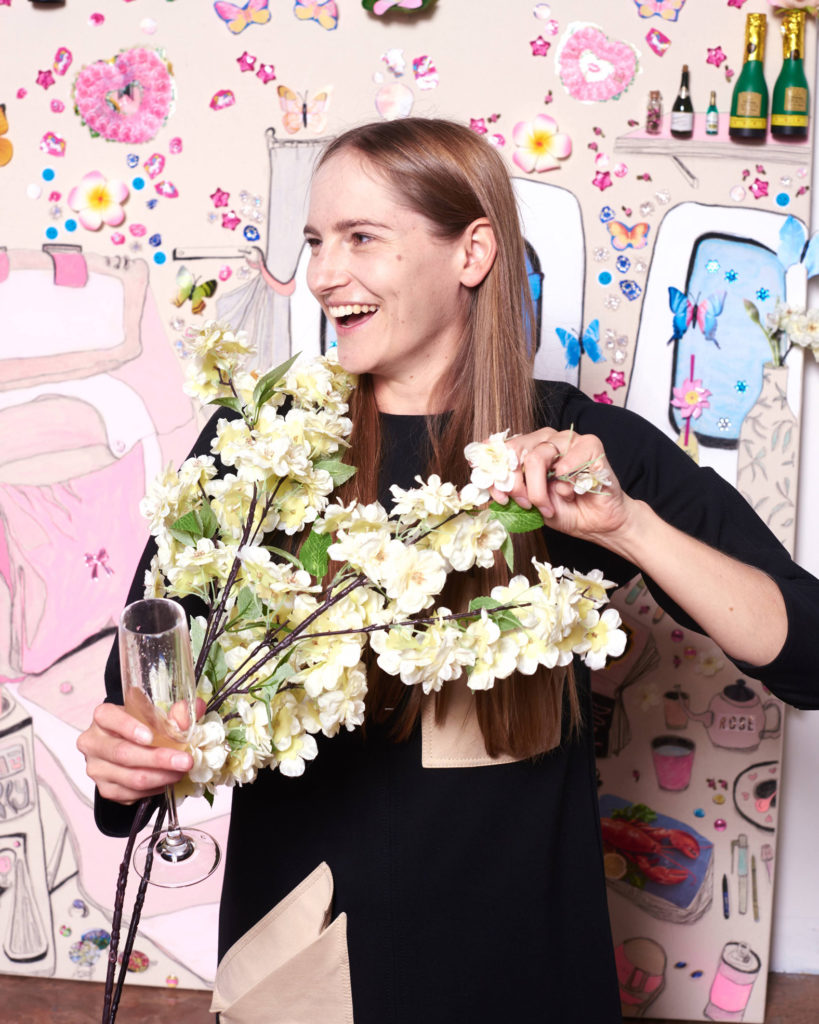
The penniless artist is as much a cliché as it is a reality. A common question of family, friends, and co-workers when you quit a well-paying full-time job to pursue a career as an artist is: “Are you sure you can make a living doing that?” What was this experience like for you? How did you deal with societal pressures and self-doubt, if there were any?
Gretchen Andrew: Most people thought I was crazy. But I guess I just always believed, “I got a job at Google once, I’m sure I could get a job at Yahoo if I needed to.” But yes, it was a totally, financially reckless decision. I saved $5,000 and was living in San Francisco’s notoriously expensive rental market. But it never crossed my mind that I wouldn’t find a way to get on. I look back and really admire myself for that. I was going to do it until I couldn’t and then figure it out.
It’s also important that, while my parents could not provide me a financial safety net, I was 22 years old and, because of an Obama era-change, was able to be on my mom’s health insurance for a nominal amount. I think of this all the time as my artist friends in Europe have never had to contend with the prospects of paying for health insurance. My health costs leaving Google would have been $674 a month to remain on the COBRA plan.
So I was no longer being offered kangaroos for dinner, but the hedonistic treadmill rolled on. It turns out that we adjust very well to change, both positive and negative.
I also was surrounded by tech worker friends, many of whom were making great money and would pilfer food from their corporate cafeterias for me. I’ll never forget the way specific people supported me during my first few months. I had a friend take me to lunch one day and say, “The world rewards what I do with a lavish salary and undervalues what you do. I’m not at all convinced that what I do is any more valuable; the least I can do is take you to lunch.” However, that sort of awareness was rare.

From 2013 to 2017, you did an apprenticeship with artist Billy Childish in London. How did that come about? And what were the most important learnings for you during that time, personally and professionally?
Gretchen Andrew: I fell in love with Billy’s work and was lucky that a friend I grew up with had been living in London, and he knew a woman who knew an artist who knew another artist that knew Billy. I spent time with as many artists as possible, and I begged for an invitation to his studio. He asked to see what I was working on, told me it was terrible, and I famously responded, “I know.” I was also lucky that his son was learning to paint and draw simultaneously, and Billy was in a generously pedagogical state of his life. Importantly, I learned how to draw. And just as importantly, I realized that authenticity was going to look different for me than it does for him.
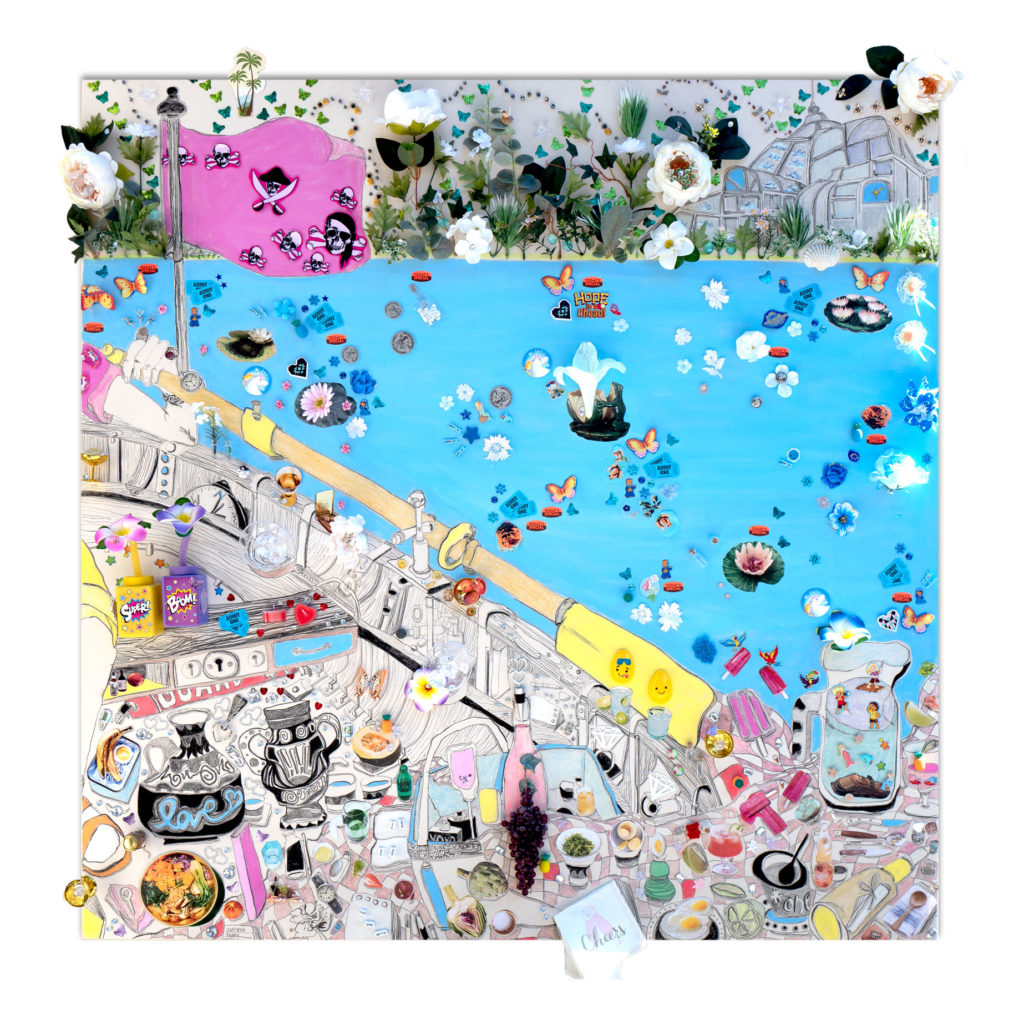
You make vision boards that apply the Law of Attraction. They are about manifesting your desires as an artist and then turning them into an internet reality by tricking Google’s search engine algorithms. When did you first learn about The Law of Attraction, and how did you come with the idea of making it a part of your art?
Gretchen Andrew: Let’s go back to my glory days of being an awkward but very successful high school track runner who’d eventually get an athletic scholarship to Division 1 Boston College. I was also a captain. One of my high school coaches was a big believer in visualization. He used to have the team lie down on the cafeteria floor and guide us through winning the state meet. Later, between 2013 and late 2018, my mom had ovarian cancer, from which she would eventually die. I was, quite reasonably, in a dark place trying to stay afloat. I explored self-hypnosis, visualization, affirmations, and other law of attraction practices. While I literally manifest my future by programming it into realization, none of my work is ironic. I have to work really hard to stay positive, and my whole art practice, while taking that to an absurd level, supports this endeavor. My vision boards are entirely sincere. I want love and money and belonging. That’s ultimately what they are all about.
If you would make a vision board about the perfect art world, how would it look like? What themes would it address?
Gretchen Andrew: I imagine my career as a big rustic wooden dining table with lots of great food and wine where people come and spend hours together. It looks like my favorite dinners at Brawn, seen in this vision board. I understand it’s a competitive world full of conflicts of interest, but it’s also my life, it’s my life’s work, and I want to do it with people that bring me and each other joy. I’m willing to hold out for that, and I’m trying to welcome conflict as an inevitable part of life. Lately, I have been reminding myself that I didn’t leave the pay, power, and security of big tech to pursue anything less than the exact future I desire.
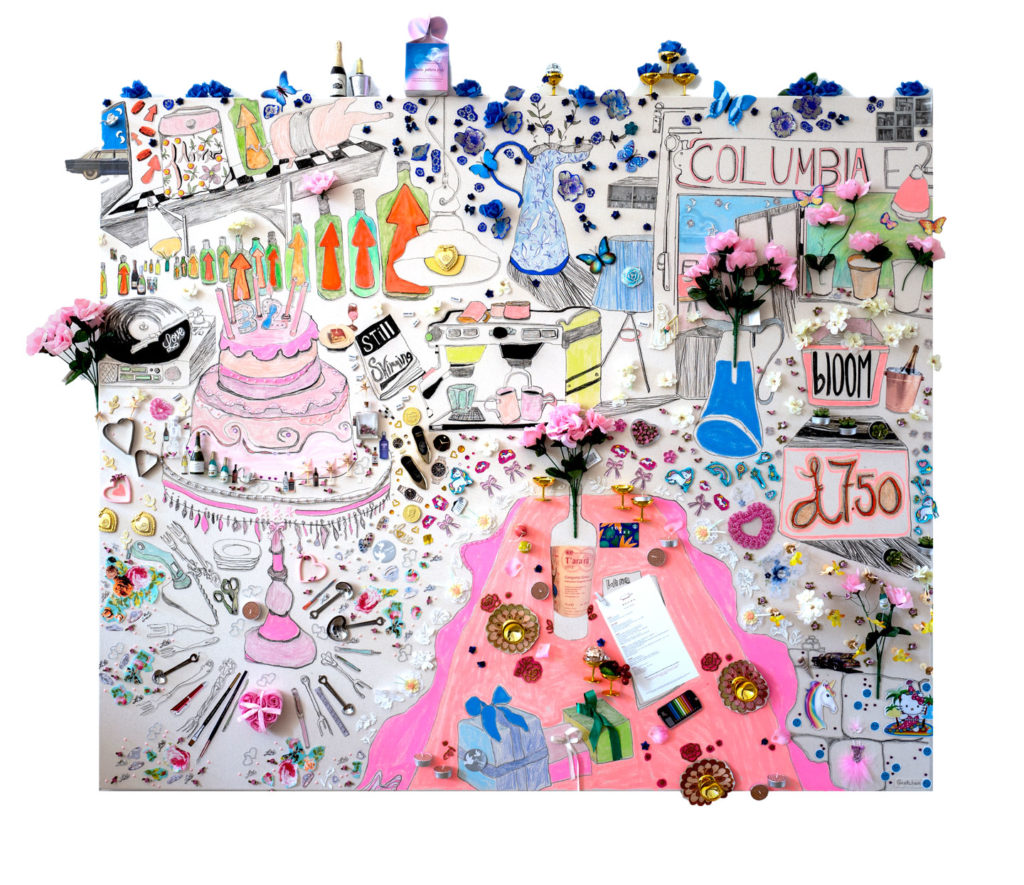
You said in another interview that you are figuring out how to get paid to be yourself. And that “there’s a lot of assumptions about who a great painter is, what they look like, and the various personas allowed in that field. I’m a blonde chick from California.” What have you learned so far about being yourself in the art world?
Gretchen Andrew: I learned that you have to think very carefully about how to dress. You have to consider what the gallery staff is going to wear and then choose a different outfit. I learned that my role as an artist is performance and that by using performativity to self-consciously turn being self-conscious into part of the art, I both fake it until I make it and dress for the job I want, not the one I have.
My work now looks like what people would expect of a blonde chick from California. Still, in manipulating the global internet and artificial intelligence, it does something people don’t expect, given how it looks. In that way, my work and I are one thing.
Outfits aside, I think the most important thing I have learned about being myself in the art world is that every institution and gallery, and publication is made of people. As people, we all want the same things I desire in my vision boards: love, appreciation, connection, belonging. So just, like, treat people like people.
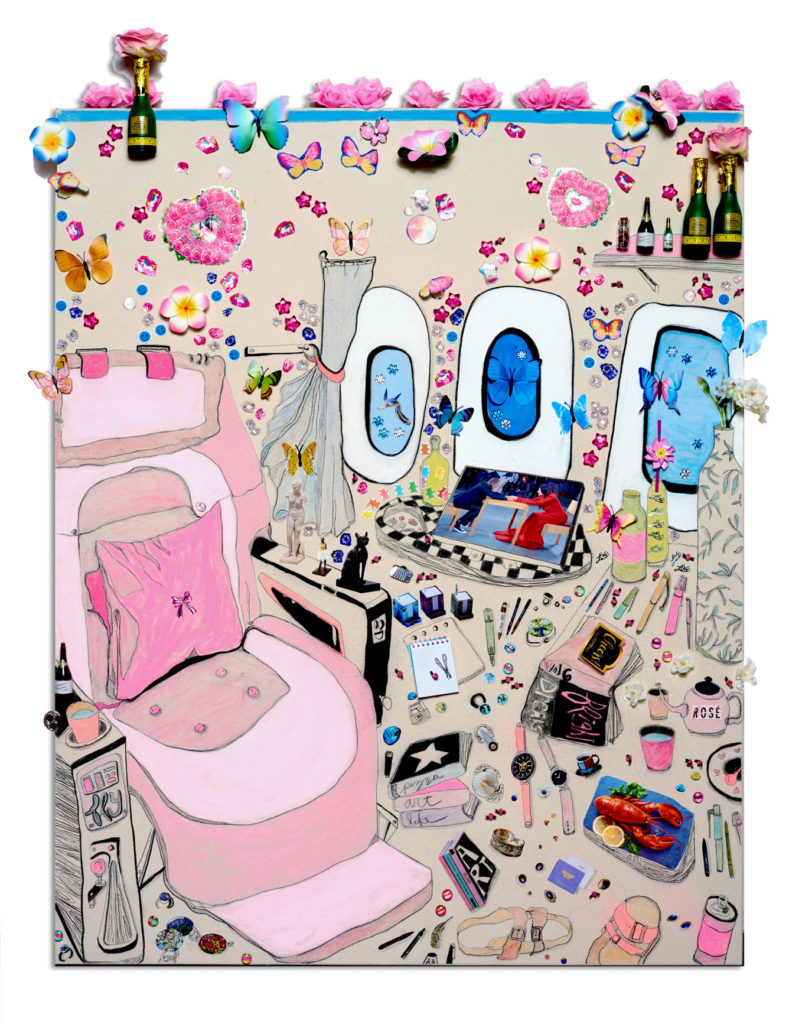
You have two upcoming solo shows in Europe, the exhibition “Other Forms of Travel” this spring at Annka Kultys Gallery in London. Please tell us about the thoughts and work behind “Other Forms of Travel.”
Gretchen Andrew: How do you go somewhere when you can’t go anywhere? What are other forms of travel? For me, the metaphor of a journey isn’t tired. I spent a lot of 2020 reflecting on how art, memory, relationships, music, movies, meditation, and literature are all forms of travel. This work from Best MFA looks explicitly at the love fantasy as a form of escape, travel, and visualization. In my professional and personal life, I am intentionally trying to reclaim a cheesy romanticism that is a part of me I am trying to stop repressing.
My work deals so much with power and control — I talk a lot about manipulating systems. I think about inputs and outputs — but there is honestly a somewhat unexpected vulnerability to it all and a power to the naive dreams interwoven in the works. Somehow the pieces I exhibited at The Monterey Museum of Art in 2020 manifested in me spending most of the last fall in a historic mansion owned by the museum. The echoes between the works I created for that show and this mansion were uncanny. The vision boards in Other Forms of Travel also hope to manifest offline; that’s why they feature more figures. I am hoping 2021 has more people around. The pieces manipulate two search terms related to travel: Best MFA and Map of the EU. Best MFA looks at validating my own experiences gained outside of art school, and Map of the EU will reunify the UK into the EU in The Next American President’s political style.
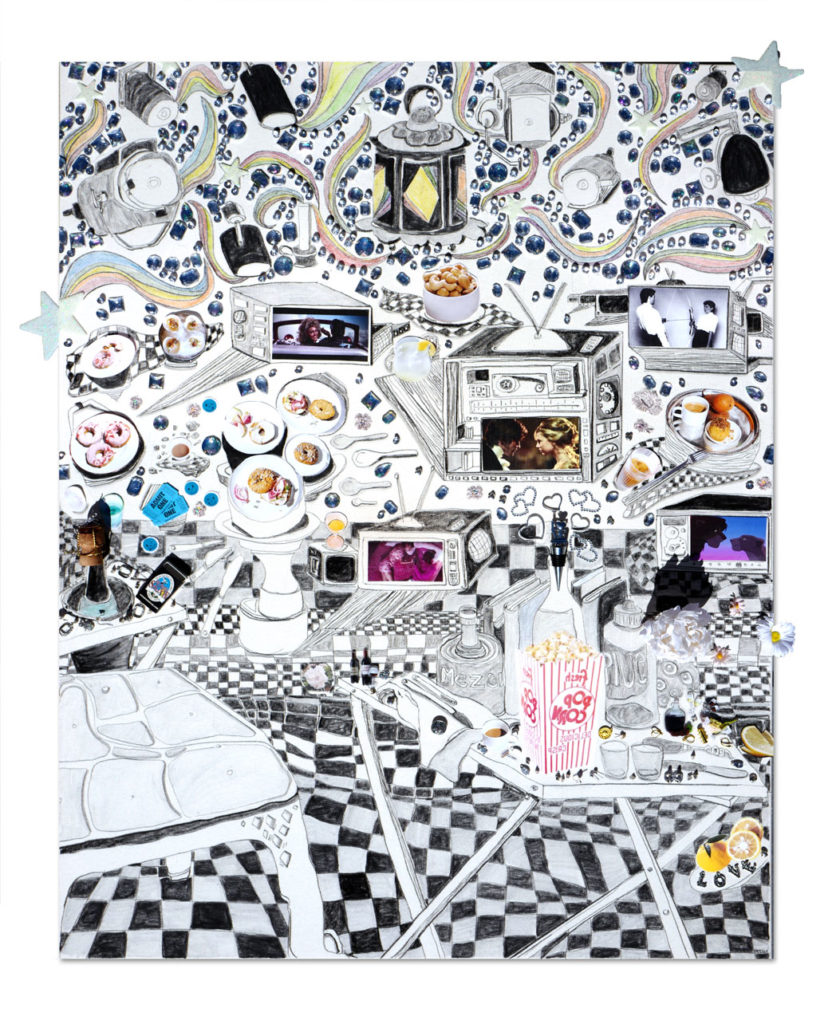
Another upcoming exhibition will be at Francisco Carolinum in Linz, Austria, and is titled “Trust Boundary.” What does the term exactly mean, and why did you choose it for the exhibition?
Gretchen Andrew: We don’t think enough about all the various systems our lives and data flow through. One of my favorite essays is Ken Thompson’s 1984 “Reflections on Trusting Trust,” where he revealed he put a secret backdoor into a compiler, a piece of software that everything depends on but that most programmers think little about. He argues that trust must be founded in people, not systems, which is also why the present abstraction between the technology we use and the accountability for its impact is so dire.
The essay is also a warning and an invitation to think backward. Another system tech workers aren’t thinking about enough is language itself. The language itself is sexist and unreliable, yet we are building artificial intelligence and NLP systems on something already very shaky. Language should not be trusted in part because it has unreliable distinctions between words. At what point exactly is someone white or black? Is this a problem that image recognition is going to solve? I certainly don’t think so. Trust Boundary will exhibit new works that push and challenge political, linguistic, technical, and social boundaries.
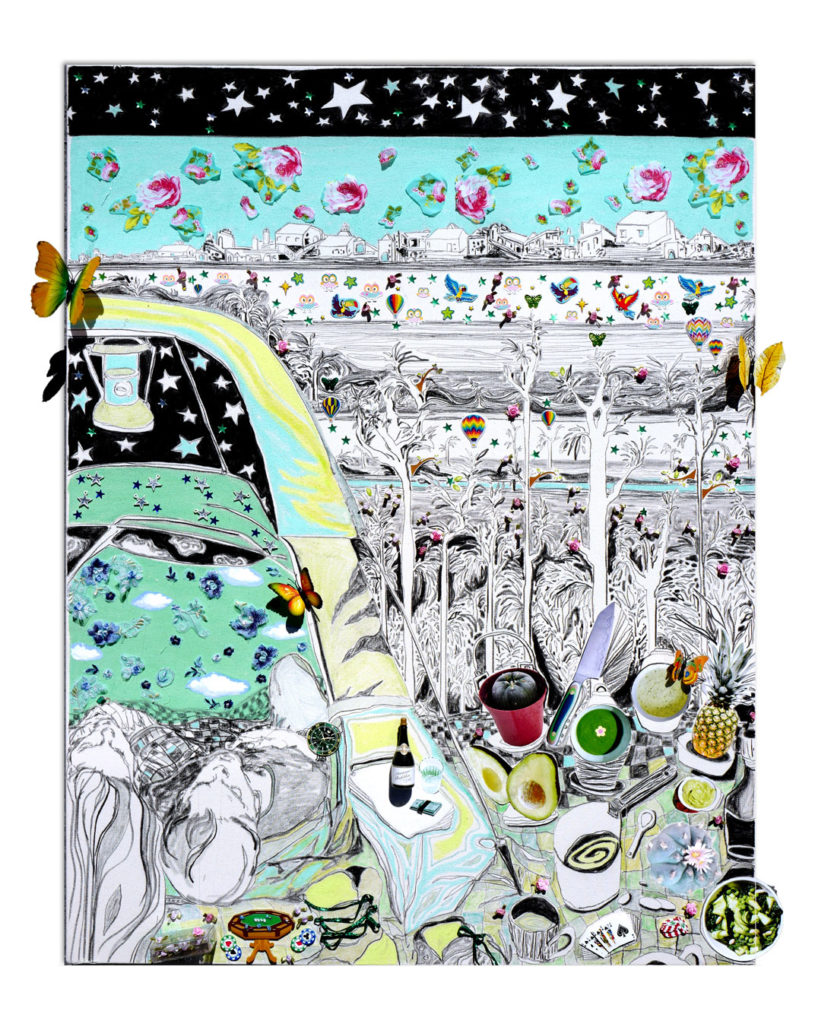
Even though the first person to write an algorithm was a woman in the 19th century, today, 59 percent of Europe’s scientists and engineers are male, according to the Eurostat data study. Where do you see your role as a female SEO artist with an educational background in information systems to raise awareness of these issues?
Gretchen Andrew: These companies that keep telling us to be obsessed with data are repeatedly overlooking their own. In the last six years of talking about diversity, Facebook has gone from 3% of its workforce being black to 3.8%. I think the most important work I can do is keep inviting people into the problems. If you spend some time with my work, if you follow me on Instagram, you eventually learn how the internet, AI, and NLP work. It’s literally dressed up, but the education is there.

